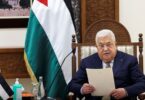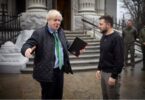Faisal Al Yafai
Iraq has a new prime minister, but the same old problems. Mohammed Allawi was appointed on February 1 as prime minister, to replace Adil Abdul-Mahdi, who was forced to resign in November because of mass protests. But already, two immediate, related and essential challenges are clear: Can Iraq’s new prime minister find a way to send the protesters home and let the Americans stay?
These two challenges will define his premiership. If he fails at either, he will have to resign, perhaps in a matter of weeks. Yet, in the manner of a Greek tragedy, Allawi is being tasked with a job he does not have the tools to accomplish. Pulled between the protesters and the political parties, Iraq’s new prime minister has been set up to fail.
Allawi is hamstrung by being, in effect, a caretaker leader. His main task is to stabilize the situation until fresh elections can be called. But fresh elections cannot be called until stability returns, which means the protest movement has to dissipate. But without reforms, the protest movement will not dissipate. And without political clout, those reforms cannot be enacted. And because Allawi is a caretaker prime minister, he does not have the political clout necessary to make those reforms – the only way for him to get political clout is to win a fresh election.
This fiendish – almost bleakly comical – political circle is the very real reality of governing Iraq today. Any prime minister, not only Allawi, would be pulled between the protesters and the political parties, and between the Americans and the Iranians, but without the necessary power to confront any of them. So far, the new prime minister is attempting to carve a way out of this dilemma by siding with the protesters against the political parties.
In his first speech, he pledged to protect protesters and guard against foreign interference – a formulation meant to imply US troops, but which in reality means Iran – and said he would not allow powerful blocs to decide the ministers in the new government. All of those pledges should find favor with the protesters, who have been demonstrating since last autumn.
By siding with the protesters, he hopes to become their representative and bounce the deadlocked parliament into accepting his choices for cabinet posts. The protesters, however, are not playing along. Within hours of his appointment, chants and placards appeared on the street against him.
Part of the reason is that Allawi himself has baggage. The protest movement is not homogenous. It is roughly split between a younger, more nationalist and more progressive cohort, who are protesting against a political system that has not brought security and prosperity to their lives, and a group closely allied with the radical cleric Muqtada al-Sadr, who have more narrow political objectives, but who bring organizational heft and protection from the security forces trying to end the protests. Allawi is part of Sairoon, the parliamentary bloc led by Sadr, and Sadr has given him his backing. Many protesters are therefore suspicious that, far from being a new broom, he is merely a new face.
By siding so openly with the protesters, Allawi may be trying to avoid criticism of being too close to the established parties. But it is risky: he may alienate parliament, which will be content to let him fail, knowing he can’t force them to accept his cabinet picks, and that the protesters on the streets will blame him if nothing changes. If he cannot get the protests under control, he will have little chance of solving the second part: keeping the Americans from leaving Iraq. The killing of the Iranian commander QasemSoleimani created both a headache and an opportunity for Iraq’s leaders.
It weakened the Shia-dominated militias inside Iraq by removing the guiding hand of Soleimani, but also created an immediate rallying cry for both protesters and pro-Iranian members of parliament, who voted for a resolution removing US troops from Iraq. That leaves the new prime minister in a delicate position. The sudden departure of 5,000 American troops would create enormous problems for a new government, not least a financial shortfall if, as the US administration has threatened, any departure of American troops also means the end of military aid to Baghdad.
In reality, US troops are unlikely to leave completely, even if, in the very worst instance, the Iraqi government and Washington reframe their departure as an “extended draw-down.”
For Allawi, avoiding such an outcome will be essential to maintaining his position and taking the country into new elections. But he may stumble into it – perhaps because the two wings of the protest movement find common ground over the departure of American troops; or perhaps because some unknown event will materialize. The autumn protest movement, the sudden breaching of the US Embassy in Baghdad and the killing of Soleimani were all unexpected events that had immediate and far-reaching political consequences. There may be another around the corner.
Time, therefore, is not on the new prime minister’s side. These are the twin challenges he faces, and in less than a week into the job the signs are not good that he can overcome them. The previous prime minister, Adil Abdul-Mahdi, was ultimately forced from office because he didn’t have enough supporters. Neither the protesters nor the political blocs cared much for him; he was close neither to the Americans nor to the Iranians. In a deadlocked political system, treading a middle path is a sure recipe for failure. Yet no other path seems to be open to the new prime minister.






